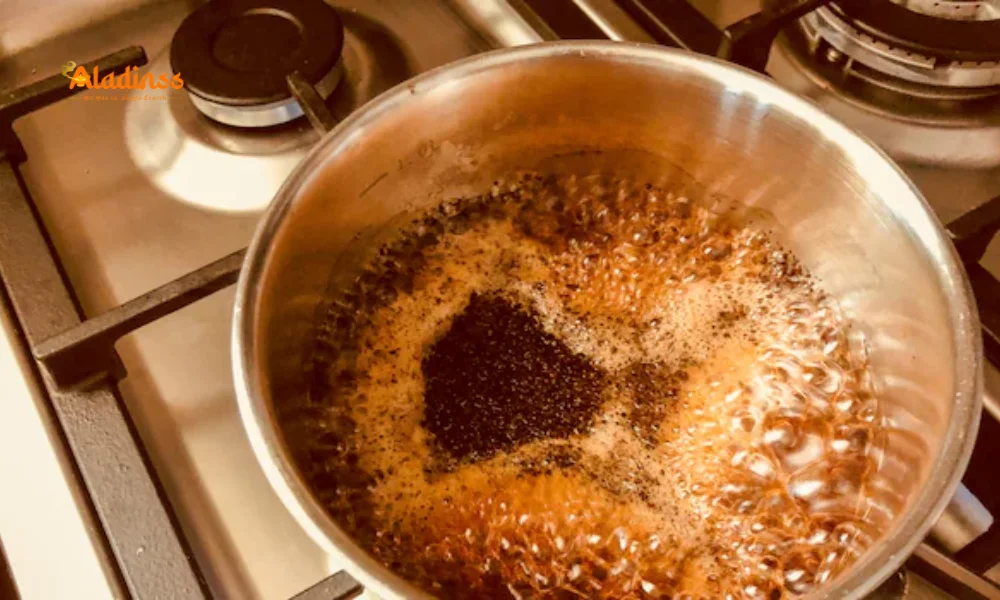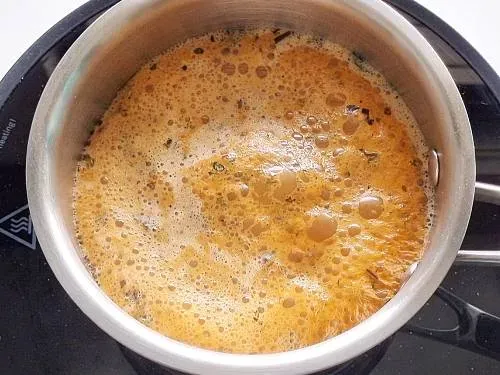Reheating Tea Dangers Exposed

Reheating Tea Dangers: Hidden Health Risks You Can't Ignore
For countless Indians, tea is more than a beverage-it's a morning ritual, a stress-buster, and a social staple, with many sipping it four or five times daily to kickstart the day or soothe a nagging headache. Yet, the widespread habit of reheating and reusing that single brew, whether at home or cafes, carries unforeseen perils. A pivotal study in the Journal of Food Science exposes how this practice can trigger five serious health issues, from digestive woes to nutrient theft. As reheating tea dangers gain traction in wellness circles, it's time to rethink this cozy custom before it brews trouble for your gut, heart, and overall vitality.
Rooted in convenience and thrift, reheating seems harmless, but science begs to differ: elevated tannins, bacterial blooms, and lost antioxidants turn a comforting cup into a potential hazard. With India's tea consumption topping 1.2 million tonnes annually-per Tea Board data-this oversight affects millions, exacerbating rising lifestyle ailments like acidity and infections. Fortunately, awareness and simple swaps can safeguard your sips, ensuring tea remains a joy, not a jeopardy.

From bitter brews to bacterial threats, let's unpack the science and strategies to sip smarter, transforming a daily delight into a daily defense for your health.
Tannin Surge: Why Reheated Tea Turns Bitter and Blocks Nutrients
Reheating unleashes a tannin tidal wave, those natural compounds in tea leaves that intensify with heat cycles, lending an acrid, puckering bite that masks the original floral notes. Beyond palate displeasure, this escalation hampers iron and calcium uptake-tannins bind minerals in the gut, slashing absorption by up to 60%, per nutritional biochemists. For anemia-prone Indians, where 50% women face deficiencies per NFHS-5, this stealthy sabotage compounds fatigue and frailty.
Digestive discord follows: tannins' astringency irritates the stomach lining, fostering nausea or cramps, especially on empty tummies. Over time, chronic exposure erodes enamel via acidity spikes (pH dipping to 4.5), inviting cavities and reflux. Ayurveda echoes this, terming reheated brews "viruddha ahara"-contradictory foods disrupting doshas, leading to ama (toxins) buildup.
Mitigation? Brew fresh; if leftovers linger, chill promptly to halt tannin extraction. Herbal infusions like ginger-lemon sidestep the issue, blending benefits without the bite.
Acidity Alarm: Reheated Tea's Toll on Gut Harmony
Heat revives tea's pH imbalance, amplifying citric and tannic acids that scorch the esophagus, worsening GERD symptoms in 20% Indians per ICMR surveys. Heartburn flares, bloating ensues, as reheating volatilizes compounds irritating the mucosa, per gastroenterologists. For gastritis sufferers, this cyclic assault mimics spicy triggers, eroding protective mucus and inviting ulcers.
Bloating's bacterial byproduct: undigested tannins ferment in the colon, gassing up the tract and disrupting microbiota diversity-key to immunity. Studies in Gut journal link such imbalances to IBS flares, with reheated tea culprits in 15% cases among frequent sippers.
Counter with alkaline pairings: a dash of baking soda or milk neutralizes; post-meal timing eases load. Probiotics in yogurt fortify resilience, turning potential turmoil into tolerable tradition.
Bacterial Brew: Room-Temp Tea's Pathogen Peril
Languishing at ambient temperatures, tea morphs into a microbial haven: Bacillus cereus and E. coli thrive in the 4-60°C "danger zone," doubling every 20 minutes per FDA metrics. Reheating to 70°C kills surface bugs but spares endospores, risking salmonellosis or staphylococcal poisoning-symptoms striking hours later with cramps and chills.
In humid Indian kitchens, where summer temps hit 35°C, forgotten pots invite Listeria, potent in immunocompromised folks. A 2023 Food Control study flags reheated beverages as 25% of household foodborne cases, underscoring refrigeration's role within 2 hours of brewing.
Pro tip: Boil afresh or use microwave bursts to 80°C+; glass over plastic vessels minimize leaching. Vigilance averts this invisible invasion, keeping cups clean and safe.
Antioxidant Annihilation: Fading Benefits of Your Favorite Brew
Tea’s allure lies in catechins and polyphenols-potent shields against oxidative stress, slashing LDL oxidation by 30% in green variants per Harvard reviews. Reheating, however, unleashes thermal degradation, halving these warriors at 80°C cycles, rendering the sip a shadow of its healthful self.
Lost potency means diminished cardio perks: black tea's theaflavins, once curbing clots, evaporate, heightening stroke risks in habitual reheater. Anti-inflammatory EGCG in greens, famed for cancer curbs, fares worse, with 40% loss per reheating, per Antioxidant journal.
Salvage with cold brews or iced variants-retaining 90% actives-or limit to one heat-up within 15 minutes. Freshness fuels the fight against free radicals.
Chemical Shifts: Flavor Fades and Toxin Traces Emerge
Successive heats warp tea's molecular makeup, volatilizing aromatics for a flat, metallic tang while birthing furans-carcinogenic byproducts at 100°C+ per EFSA. Subpar vessels exacerbate: plastic mugs leach BPA, mimicking estrogen and disrupting hormones; aluminum pots add heavy metals, taxing livers.
This alchemy erodes flavor fidelity-Assam's malty depth dulls to dishwater-while trace toxins accumulate, linking to endocrine glitches in chronic consumers. Opt for borosilicate glass or stainless steel, heating gently to 70°C max, preserving purity.
Smart Sipping: Proven Tips to Reheat Safely or Skip Altogether
Within 15 minutes? A quick warm-up's fine, but blueprint batches: brew per pot, portion into thermoses retaining heat 4-6 hours sans degradation. Stovetop nudges-low flame, stir-outshine microwaves' uneven zaps that breed hotspots.
Unavoidable? Strain leaves pre-reheat to curb tannin leach; infuse fresh herbs for revival. Long-term, diversify: herbal tisanes or green matcha evade the pitfalls, blending variety with vigilance for guilt-free indulgence.
In essence, reheating tea dangers lurk in convenience's shadow, but mindful practices brew health, not harm-savor wisely, one fresh cup at a time.
Comment / Reply From
No comments yet. Be the first to comment!






